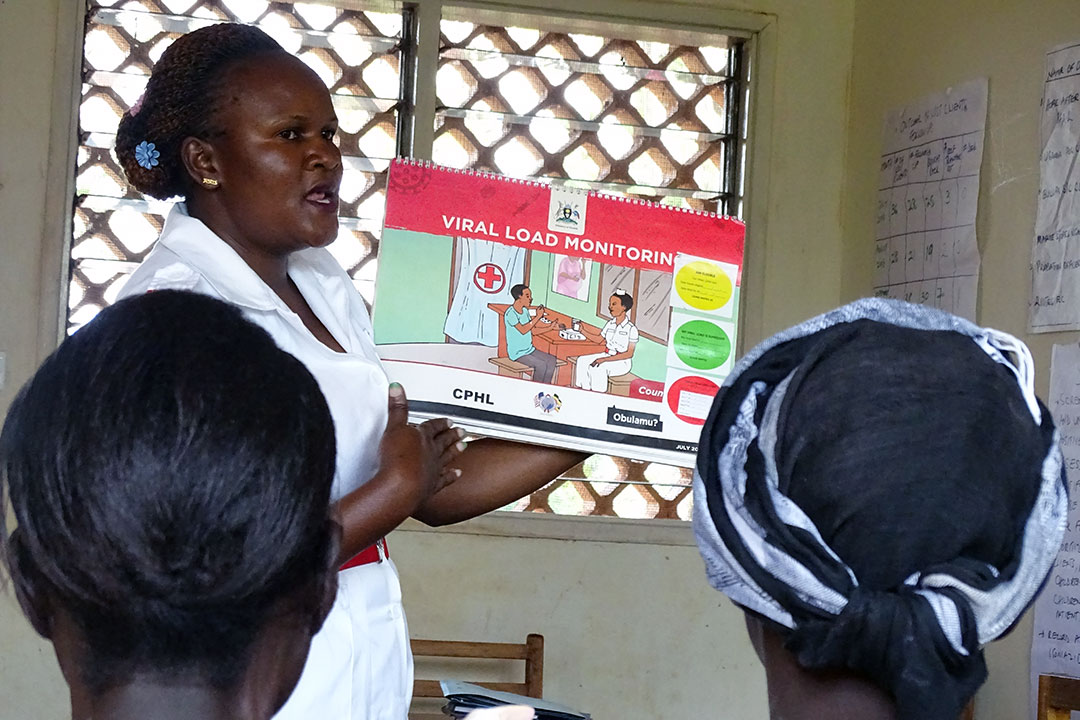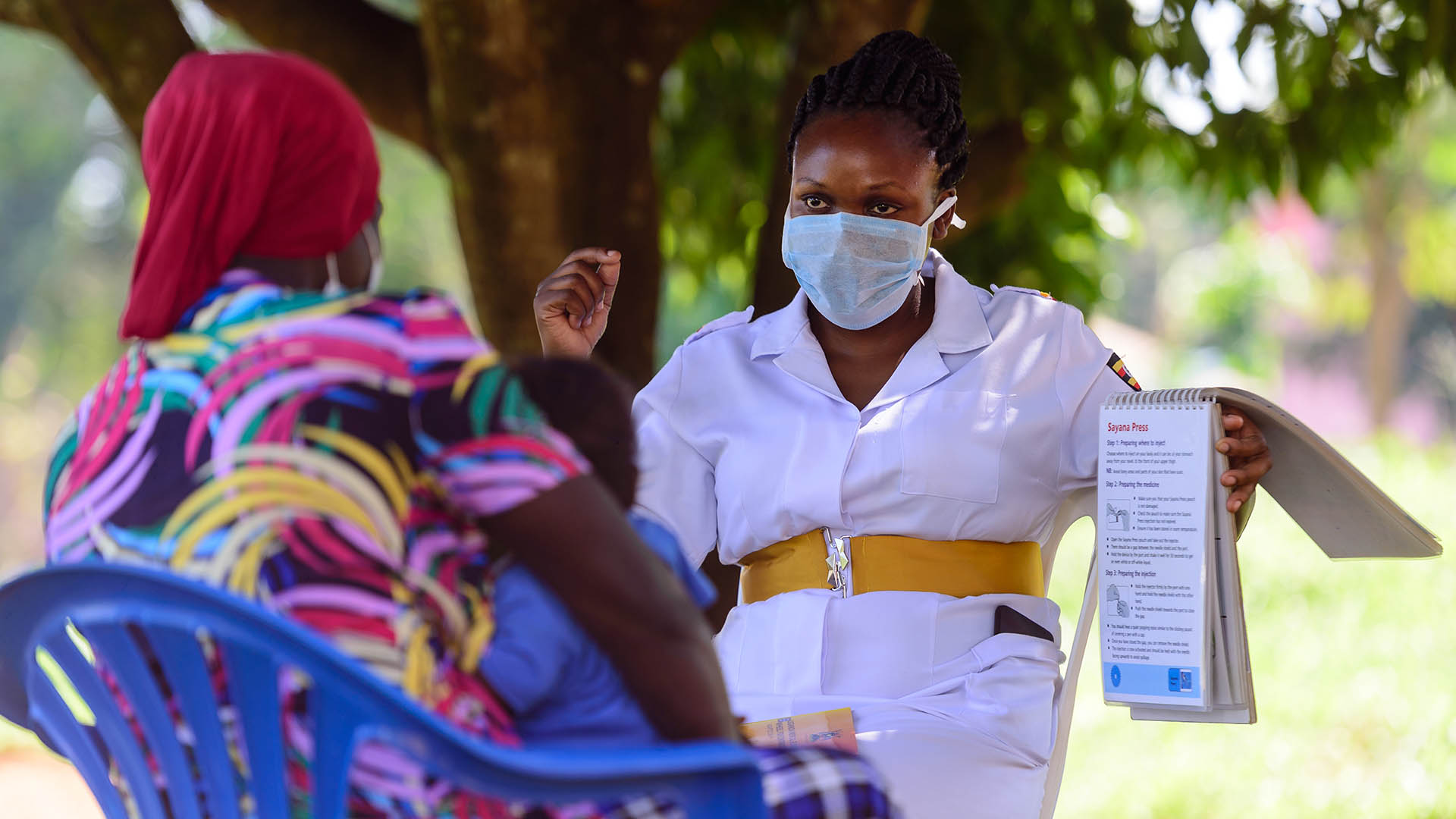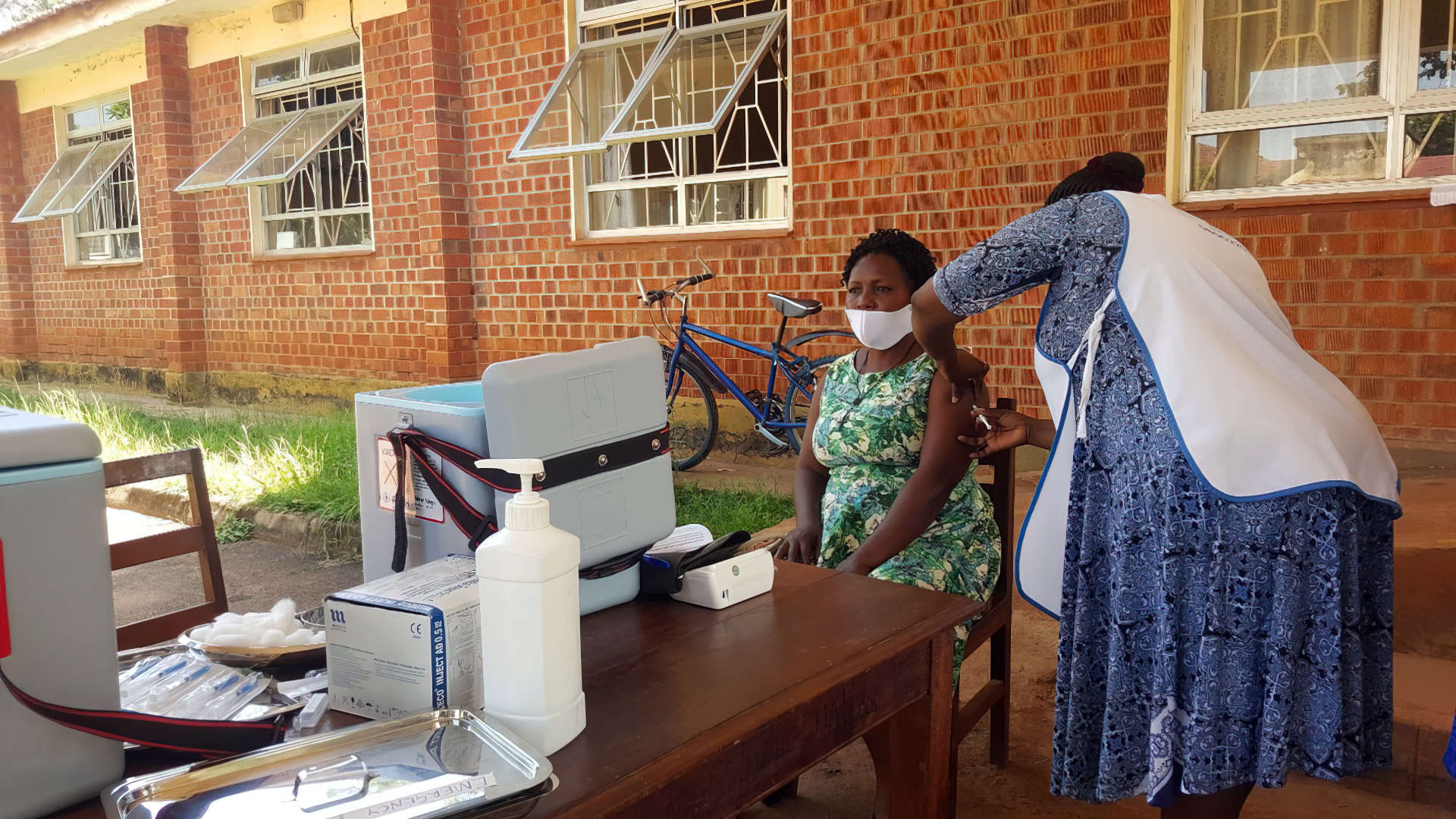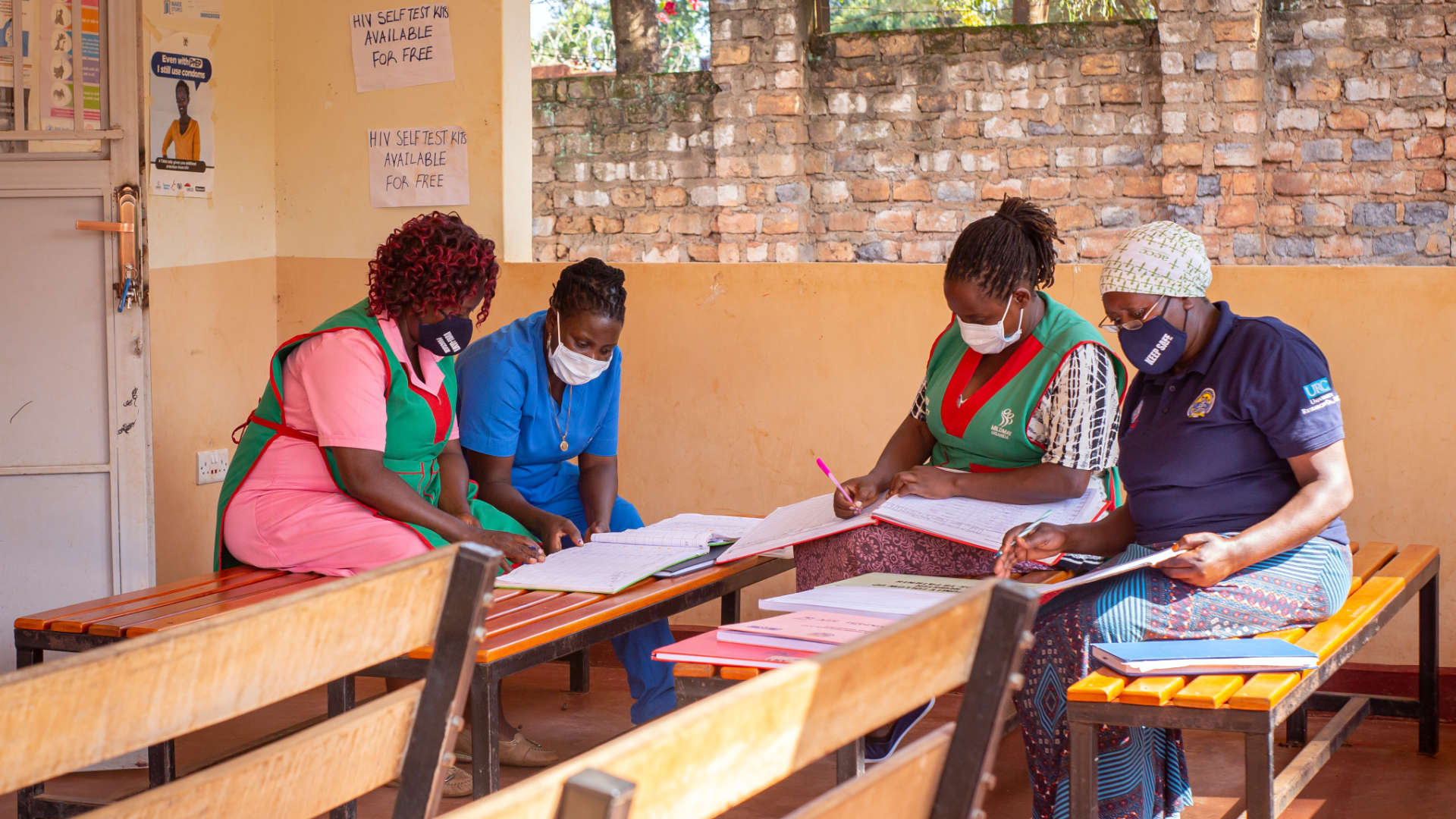By Joweria Kasiir
Nursing Officer, Kamuli General ART Clinic, Uganda
As a child, I always admired health workers. My late father was a health worker who continuously upgraded his skills and helped me become a nurse. He even personally escorted me to complete the application for nursing school when I was in secondary school.
I have enjoyed being a nurse since I graduated nursing school in 2005. I still do today, even with the challenges of COVID-19. That surprises some people. They think being a nurse is about watching people die, especially because I work at the Kamuli General Antiretroviral (ART) Clinic for clients living with HIV. They are wrong – nursing is about helping patients get better. When the patient improves, I get excited. That’s what I want young people to know. They should become nurses because it’s an amazing feeling to serve others.
Why do I work with clients living with HIV? Previously, I worked as the nurse-in-charge at the outpatient department, then at the pediatric, female, and male wards before becoming nurse in-charge of the ART Clinic. I wanted to be more effective at helping HIV-positive pregnant women, so I started volunteering at the ART Clinic and learned more about medications and counseling. For some clients, viral load suppression takes time. If viral loads are not affected by first-line medication, we might switch them to a second-line medication and help them manage any complications.
There’s a 15-year-old girl now who is on third-line treatment, a treatment for patients who have failure or intolerance to first- and second-line drug regimens. I travel by taxi to the Jinja Regional Referral Hospital – 63 kilometers away – to get the medications as they are not available to us directly at our district hospital. Making the difference in the life of a child is incredibly satisfying.
Another client who really touched me is a man on first-line treatment who lives far away. He did not experience viral load suppression, even after he switched to second-line treatment. Thanks to the training I received from the URC-led RHITES-EC Project, I knew that it was important for him to be tested for possible drug resistance. We traveled to his home (with his permission) on a boda boda (motorbike) to take blood samples. When the test results came back, we succeeded in identifying a different second-line drug regimen that would be effective for him, and it worked! This made me so happy because the treatment is available at our hospital.
RHITES-EC is helping us ensure that all our current 2,714 clients continue to receive HIV services during the COVID-19 crisis. We provide multiple months of medications to clients, so they don’t have to visit the facility as often. We also are traveling to communities with medications and performing viral load monitoring when possible.
Our main challenge? We need personal protective equipment! And we need more support for the training of new nurses. My dream is that many young people can become nurses more easily in the future. We truly make a difference in the health outcomes of our patients.



